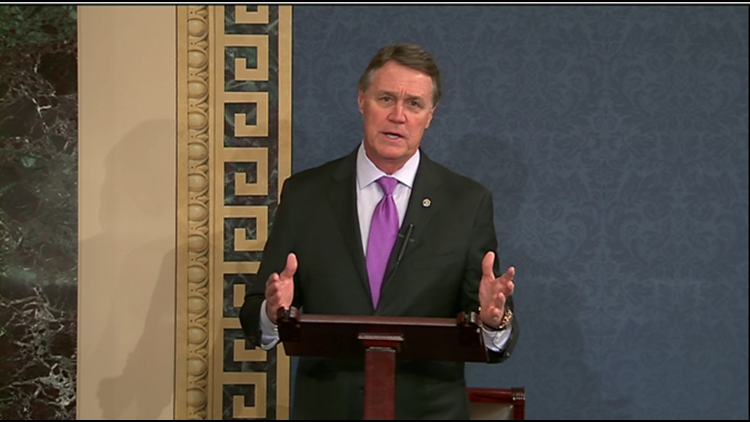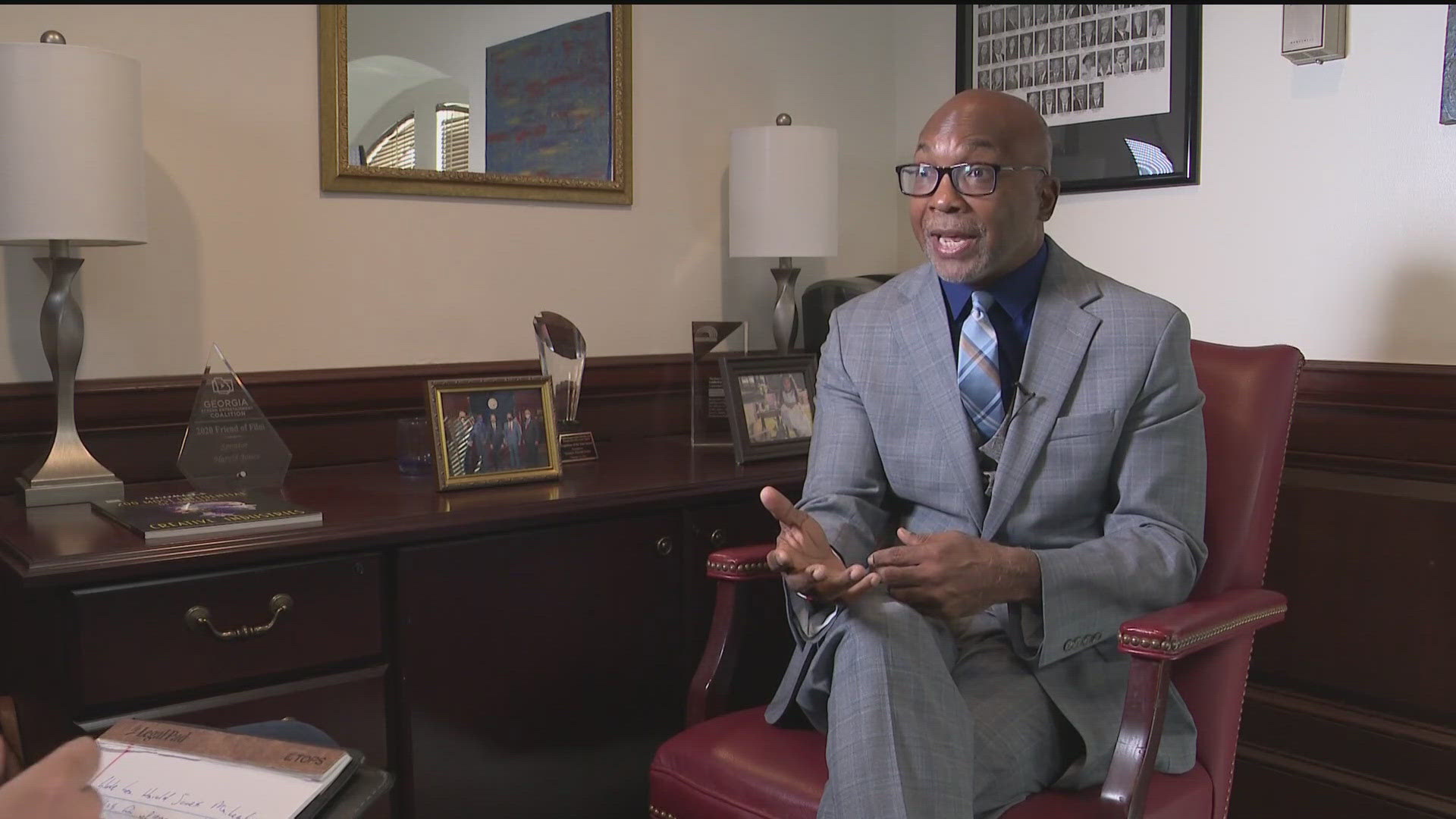WASHINGTON (WXIA) -- US Sen. David Perdue (R-Georgia), a member of the Senate Judiciary Committee stepped to the well of the US Senate Thursday, to explain why he says his decision to withhold consent on the White House's nomination of Appeals Court Judge Merrick Garland to the Supreme Court is a "principled" decision. He says the decision of the ranking party is necessary to preserve the nomination process and the integrity of the nominee.
The full text of Perdue's comments are presented below, as is video of his speech from the US Senate:
![Senator Perdue on Supreme Court Nominee [oembed : 81945480] [oembed : 81945480]](/Portals/_default/Skins/PrestoLegacy/CommonCss/images/smartembed.png)
"Regarding the vacancy on the Supreme Court, many of our colleagues in the minority party have said the same things that we are saying today. Let's stop kidding each other. This kind of political showmanship and, yes indeed, hypocrisy is exactly what makes everyone back in my home state absolutely apoplectic with Washington.The last time I addressed the Supreme Court vacancy on the Senate floor, I urged my colleagues on the other side of the aisle not to let the nominations process get bogged down in partisan politics. To not let this process turn into political theatre. That's not what this should be about.
Because that's exactly what's happened far too often in this body ever since the Bork nomination way back in 1987.
The organized campaign of vilification and character attacks surrounding Judge Bork's nomination was so unprecedented and so extreme that it took the creation of a new word – the verb ‘to bork' – to describe what had happened.
The process for nominating justices to the Supreme Court has been thoroughly politicized ever since. That politicization has done great damage not only to the Court, but to this body, the United States Senate. And it has expanded beyond just Supreme Court nominees and now affects so many of our nominees for circuit judgeships as well.
That's what happened in 2013 when then-Majority Leader Reid broke a tradition almost as old as the Senate itself, by invoking the nuclear option and breaking the Senate's filibuster rule to stack various Circuit Courts.
I don't think I need to remind any of my colleagues that when the Democrats were in the minority there was no shortage of protests heard in this room about how sacred an institution the filibuster was. Keep in mind that the nuclear option was invoked after the Senate had confirmed the President's first nominee to the D.C. Circuit by a unanimous of 97 to zero vote.
It was an act of raw political power, the nuclear option.
We heard yesterday that the President has named his nominee to the Supreme Court. But, let's be clear, any previous confirmation, record as a judge, or professional qualifications are not the issue here, for any nominee.
What's at stake here is the integrity of the process, not the person. It's the principle, not the individual.
Because our judicial nominees to the Supreme Court, the circuits, and the district courts deserve better than to be used as pawns in a political fight. And that's exactly what would happen if the Senate were to consider any nominee in the middle of this political season.
I am new to this institution, but this has been the view of my colleagues in both parties who have served in the Senate for far longer than I have.
This was their view no matter who the nominee was. This was their view even when there wasn't a vacancy to fill.
The former Chairman of the Judiciary Committee, Vice President Biden, recognized this in 1992 when he said that, quote, ‘once the political season is underway, and it is, action on a Supreme Court nomination must be' – I want to emphasize that must – ‘must be put off until after the election campaign is over. That is what is fair to the nominee and is central to the process. Otherwise, it seems to me, we will be in deep trouble as an institution.'
I agree.
The Vice President correctly saw that when we inject a nomination into a contentious election-year atmosphere, we do a disservice not only to the nominee but to the institution of the United States Senate itself. It's my view that enough institutional damage has already been done to the Senate through these politicized nominations.
Now, I'd like to say a little about the text of the Constitution, we hear both sides talk about this, but let's see it in detail. I've heard many of my Democratic colleagues claim that the Senate has an obligation to schedule hearings and hold a vote on this nominee.
Well, we've all read Article 2, Section 2 of the Constitution.
Every member of this body knows that the Constitution says nothing about hearings or votes on judicial nominees. It's simply not there.
Senators of both parties have always understood this and have said so for years, regardless of who was in the majority.
In 2005, Minority Leader Reid said, ‘nowhere in the Constitution does it say the Senate has a duty to give Presidential appointees a vote.'
Before that, in 2002, the former Chief Judge of the D.C. Circuit, Abner Mikva, who was a Carter appointee, said that, quote, ‘the Senate should not act on any Supreme Court vacancies that might occur until after the next presidential election.'
The senior Senator from Nevada and Judge Mikva were right then, and Chairman Grassley and my Republican colleagues are right now.
Despite many of them previously making the exact same points we are today, my Democratic colleagues are continuing this diatribe of telling us to do our job. I'd respectfully say to my Democratic colleagues today, we are doing our job.
Our job as Senators is to decide how to responsibly exercise the powers of advice and consent delegated to us under our Constitution.
The responsible course of action here – a course of action endorsed by both Democrats and Republicans for decades – is to refrain from initiating the nominations process in the midst of an election-year political fight.
The responsible course of action is to avoid the political theatre that this nomination would become."


